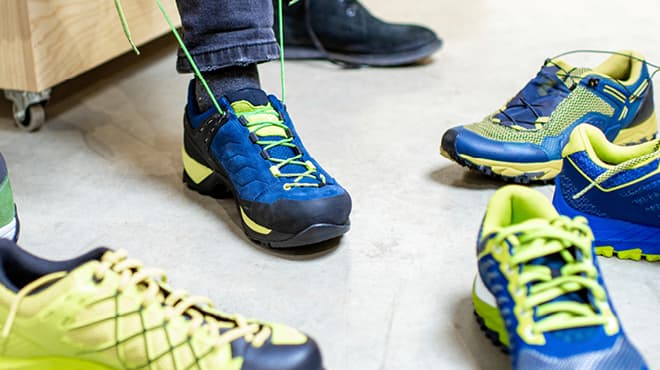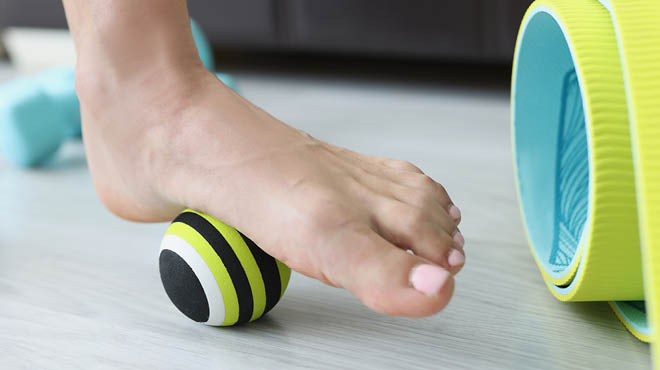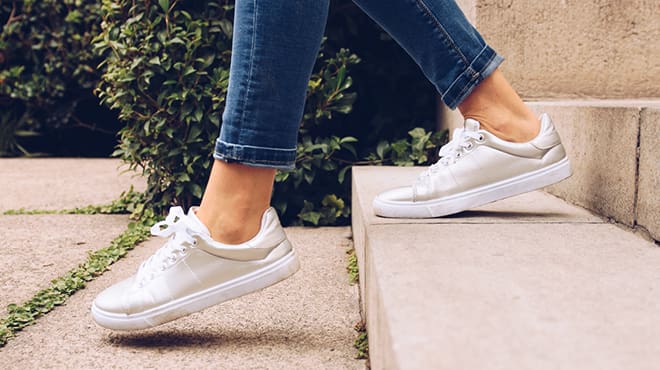Recent Posts
How to determine your foot arch type

Updated May 16, 2023
Are you thinking of buying a new pair of athletic shoes? Sports can place tremendous pressure on the feet, ankles and legs, whether you're a casual athlete or participate in competitive sports. For example, running and jumping generate impact force through the legs that is three to five times a person's body weight.
Choosing athletic shoes for specific sports activities can improve comfort and performance. They also can prevent injuries.
One thing to know before you buy is what type of foot arch you have. If you're not sure about your foot arch type, dip your foot in water, step on a piece of cardboard and examine the print that remains. After examining the print, use the Determine Your Foot Arch chart.
Here are descriptions of arch types and shoe characteristics that complement and support your foot:
Neutral (medium) arch
If the middle part of your arch is about half filled, this means you have a neutral arch. Your arch naturally supports your body weight and pronates, or rolls in, under a normal load.
Look for shoes with firm midsoles, straight to semi-curved lasts — the shape of the sole and the footprint the shoe is built around — and moderate rear-foot stability.
Flat (low) arch

If your footprint looks like a complete foot, then you have a flat arch. Your arch probably collapses when you walk or run. Your low arches may contribute to muscle stress and joint problems.
You may benefit from a walking shoe with a straight last and motion control to help stabilize your feet.
High arch
If you see little of your footprint, you likely have a high arch. High arches may cause excessive strain on joints and muscles. Your feet may not absorb shock well, especially if you perform high-impact or jumping activities.
Look for shoes with cushioning to compensate for the lack of natural shock absorption and a curved last.
Comfort counts most
Use these tips as a guide for choosing the right athletic shoe for your feet. But when the sole meets the road, comfort and how the shoes fit are what count the most toward performance and preventing injury.
Stephanie Kvas, D.P.M., is a podiatrist in New Prague and Waseca, Minnesota.






